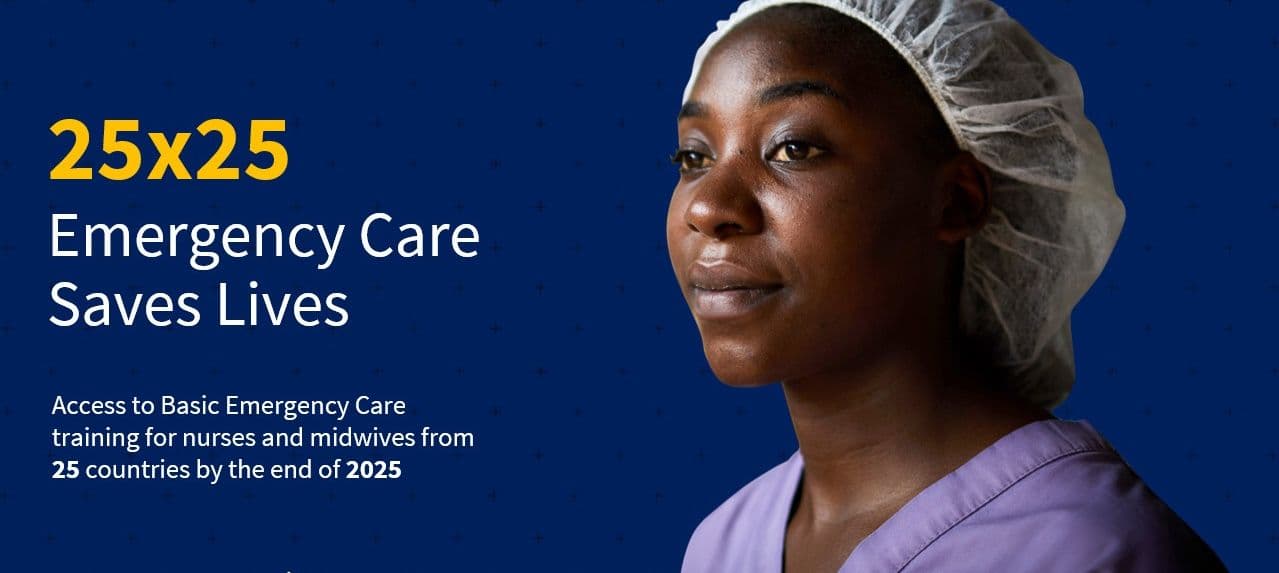Strengthening acute care systems in low-resource settings
THE CHALLENGE
Urgent need for stronger acute care systems
In low- and middle-income countries, 50% of deaths and one-third of disabilities could be addressed with effective acute care. Emergency care providers have the potential to save many of these lives.
However, in resource-limited settings, care is often compromised by a lack of training. This shortfall can lead to failures in recognizing urgency, providing appropriate initial care, and making timely onward referrals. Improving training and resources for emergency care providers in these areas is crucial to addressing these preventable deaths and disabilities.
A NEW GLOBAL ALLIANCE
The Acute Care Action Network
In 2023, the World Health Assembly approved a resolution to enhance the global access to quality emergency, critical, and operative care services. Following this, the World Health Organization, supported by the Laerdal Foundation and the American Heart Association, launched the Acute Care Action Network (ACAN).
ACAN aims to save more lives by bringing together top organizations dedicated to improving emergency, critical, and operative care services. It seeks to enhance acute care delivery in areas with limited resources by utilizing WHO's tools, resources, and best practices.

The Acute Care Action Network
A new network to strengthen emergency and acute care.

The Acute Care Action Network will bring proven interventions to scale - together. A key priority is to scale up the Basic Emergency Care program.
- Teri Reynolds, Unit Head, Clinical Services and Systems, WHO

Scaling up Basic Emergency Care
In 2023, WHO launched the “25x25” campaign to provide access to training for nurses and midwives in 25 countries by 2025 in the Basic Emergency Care program.
The Basic Emergency Care program has already significantly reduced mortality from injuries and sepsis and has now been further improved into an even more scalable, cost-effective, and impactful program.
More than 400,000 providers may be trained by 2030. If only one out of four saves one additional life every year, over 100,000 lives could be saved every year.
Launching the 25*25 campaign
Dr. Tedros Adhanom Ghebreyesus
Director-General, The World Health Organization
A paradigm shift
More scaleable and sustainable impact
To support WHO to scale the Basic Emergency Care program and achieve sustainable impact, we have worked with the WHO Academy to develop a condensed, interactive e-learning program, enabling the face-to-face part of the course to be focused on practical skills training and taken down from previously 5 to now 2 days – saving significant costs.
We have also developed a training kit, called a Portable Learning Lab. The kit is ultra-portable, weighing only about 9 kilos. It is also ultra-affordable, being distributed on a not-for-profit basis through Laerdal Global Health to low-and medium-income countries. Costs is estimated to come down about 90% compared to equipment used today, to the extent equipment is available at all.
The low cost also allows the individual hospitals to acquire their own training kit, enabling the important worksite refresher training.


We have seen a great impact of the Basic Emergency Care training so far. The new, hybrid version of the program will be a saviour to us, enabling us to reach much further and have an even bigger impact on helping save lives.
Raya Mussa, General Secretary in the Emergency Medical Association of Tanzania

Basic Emergency Care Program training in Uganda
